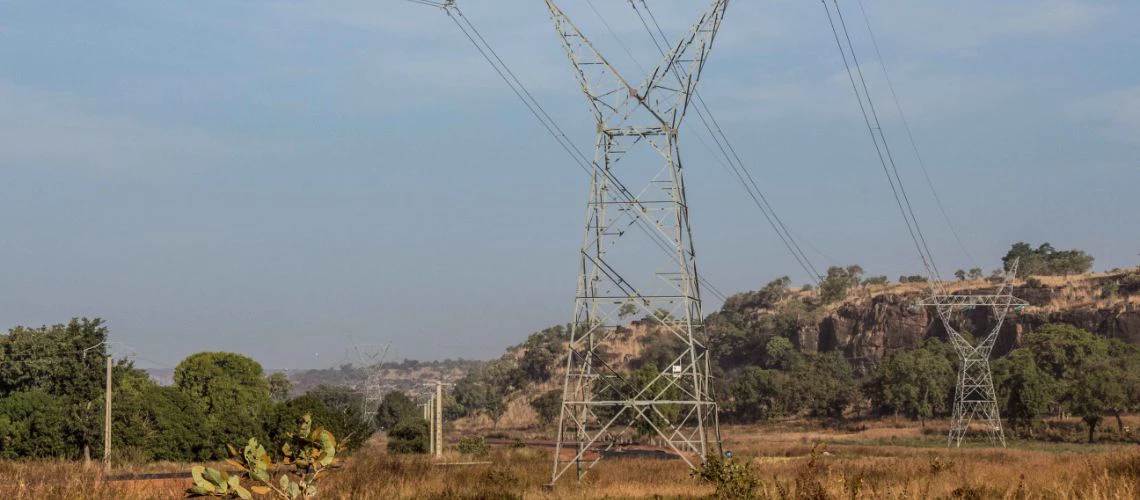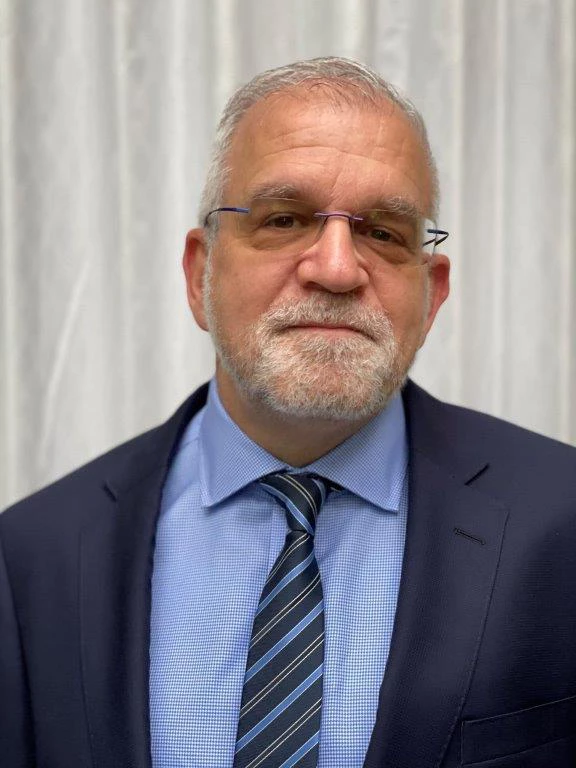 Electric lines in Mali
Electric lines in Mali
Home to a rapidly growing population and persistently high rates of poverty, West Africa suffers from an energy conundrum that if solved, has the potential to unleash economic development, drive down poverty, and improve the quality of life of millions of people.
Caught in a vicious cycle, the region’s energy sector is plagued by unreliable, extremely expensive power supplies, low rates of electricity access, and an inability to recover the exorbitantly high cost of producing electricity. Only 50% of the population has access to electricity – and an unreliable supply at best. Power supplies suffer from an average of 44 hours of outages per month and are among the most expensive in the world with prices averaging about $0.20 per kilowatt-hour. West Africans pay about twice as much for electricity as their neighbors on the eastern side of the continent, and for those living in the region’s fragile states, prices can be as high as $0.40 per kilowatt-hour.
Despite such steep prices, public utilities in West Africa struggle to recover the cost of producing electricity, the result of a combination of high generation costs due to small scale generation, expensive imported fuel, and rampant operational inefficiencies. Power generation costs are about 40% above what could be achieved with more efficient generation technologies, while distribution utilities only recover revenue on 60 to 70% of the electricity they deliver.
The bottom line? West Africans are being left behind in the race to compete in the global economy, with countries unable to deliver the essential services their populations need to lead healthy, productive lives. However, this is set to change. Since the early 2000s, the Economic Commission of West African States (ECOWAS) has been working toward a vision of a fully integrated regional power market, the West African Power Pool (WAPP), that could not only address many of these woes and but redefine the development trajectory of West Africa.
Currently, many small countries have been forced to rely on expensive, inefficient and dirty small-scale oil-fired and diesel generation, while their neighboring countries are well-endowed with hydropower, natural gas and solar resources that cannot be developed because of the limited size of domestic markets. By interconnecting neighboring power systems and pooling energy resources, trade within the West African Power Pool could reduce energy costs while increasing power system resilience and reliability in the region.
In fact, economic benefits of the regional power market have been estimated at $665 million per year, and the reduction in power outages at the regional level would be equivalent to the entire electricity consumption of Togo. The average cost of electricity generation in the region would fall by one third, and the electricity cost differential across countries would narrow markedly.
Among the largest beneficiaries of the regional energy market would be the region’s small and energy-constrained fragile states; notably, Liberia, Sierra Leone, Gambia, Guinea-Bissau, but also Burkina Faso, Niger, and Mali. Through increased reliance on imports, such countries would enjoy substantial reductions in power generation costs of at least 20% resulting in annual financial savings worth between 1 to 3.5% of GDP that could be invested in other sectors such as healthcare and education.
A further bonus is that regional power trade will place the region on a cleaner development path, unlocking the rich hydro-power resources in Guinea and the intense solar radiation of the Sahel, as well as making the gas resources of the coastal countries more widely available. Cote d’Ivoire, whose energy mix consists of a combination of hydropower and gas, already exports 11% of its electricity generation, and intends to increase exports to 20%. As a result, the overall carbon intensity of electricity would drop by 30%.
Thanks to strong leadership from regional bodies and sustained financial support from international donors, substantial progress has been made in developing cross-border transmission lines to pave the way for regional trade. About $5 billion have been invested by various donors in cross-border transmission lines over more than one decade. The World Bank’s International Development Association (IDA) alone has provided $1.8 billion in financing toward completing primary interconnections and regional infrastructure. There are currently 4,000 kilometers of transmission lines under development, and their imminent completion will allow electrons to flow all the way from Abuja in Nigeria to Dakar in Senegal, opening up vast opportunities for every single country along the way.
However, realizing the gains from a regional power market requires more than infrastructure. While the physical infrastructure is an indispensable foundation, it will take concerted policy and institutional reforms for that infrastructure to deliver its full potential. In West Africa, many barriers exist for countries to build trust in trade. Exporting countries need to be sure that they will be paid in a timely manner for electricity sales, and importing countries need to be able to rely on the delivery of quantities of electricity when they need it. As in any trade, there needs to be a clear mechanism to secure and enforce trading contracts, which are currently wanting.
Technical solutions exist and are being adopted in many cases. From a regional perspective, regional electricity institutions of ECOWAS play an important role in the creation of this integrated power market by creating an overarching legal, regulatory and operational framework to enable efficient trade in the region. These institutions include the WAPP, in charge of promoting regional infrastructure and coordinating power exchanges among WAPP members, and the ECOWAS Regional Electricity Regulatory Authority (ERERA) responsible for developing and enforcing the regulatory framework that enables efficient regional trade. And while a regional approach is essential, it is not enough. Achieving regional trade goals also rests on addressing deficiencies at the national level.
As we look ahead, there are grounds for optimism. The region has come together to put in place several critical reforms that countries would need to undertake at a national level and in a coordinated fashion to facilitate regional trade in the region. This is a monumental undertaking that testifies to the willingness of governments to work together to realize a regional vision that could help catalyze economic growth at a time when the outlook continues to look grim in the face of the COVID-19 crisis. An integrated power market is the key to unlocking the incredible potential of West Africa’s economies and its people, and the World Bank remains committed to supporting the region’s ambitions and reform agenda to bring this vision to fruition.
Subscribe here to stay up to date with the latest Energy blogs.


Join the Conversation